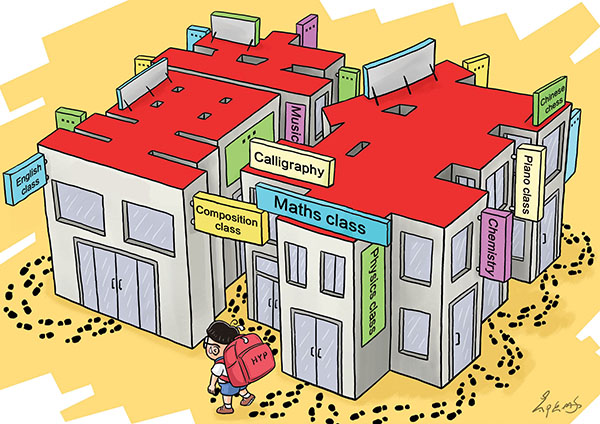Cram schools increase students' burden


Editor's note: The ongoing nationwide campaign to regulate the education sector is aimed at easing the academic burden of elementary and middle school students. While more than 12,000 "cram schools" had been overhauled by the end of May, many people feel the campaign could lead to a broad-brush approach to improve the existing education system. Two experts share their views on the issue with China Daily's Yao Yuxin. Excerpts follow:
Children get little recreation time

Basic education puts emphasis on fulfilling the learning needs of the majority of primary and middle schools students. Thus those with different learning ability have to attend after-school classes to complement their individual learning needs, because a different teacher or learning method could help a student better understand a subject she or he is having trouble with in class.
Given the severe competition to get admitted to good universities, high expectation of parents from their children, there has been a significant increase in the number of "cram schools" in recent years, with many of these schools claiming they can produce instant results and help students pass the exams.
Students need at least 8 hours of sleep. They also need to attend regular classes in school and do homework, which can take hours. So if they also have to attend a cram school every day, they will be left with little or no time to do physical exercise or play with friends, which are necessary for their healthy growth.
Parents should also rethink their belief that studying for long hours can lead to better grades. Instead, they should weigh their children's performance at school and figure out which schedule or rhythm suits their children best before deciding on whether to enroll a child in an after-school course.

































